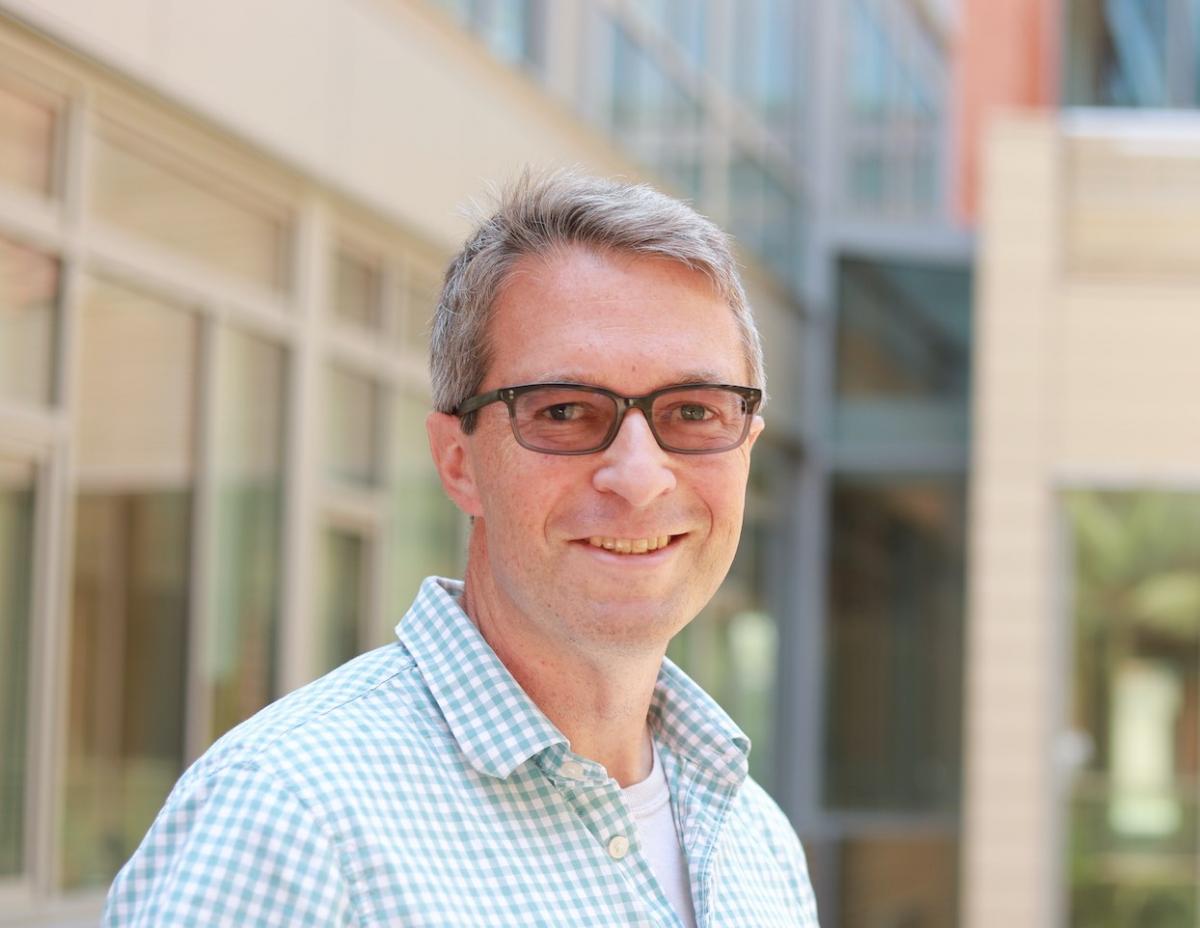Jeff Eldredge
University of California Los Angeles
Seminar Information
Engineering Building Unit 2 (EBU2)
Room 584
Seminar Recording Available: Please contact seminar coordinator, Jake Blair at (j1blair@eng.ucsd.edu)

There is a wide variety of applications in which we may need knowledge of a transient fluid flow, but we only have information from a few noisy sensors. For example, small flight vehicles, targeted for many emerging applications, are more agile but also more strongly affected by unexpected disturbances (‘gusts’) than larger vehicles. The non-linear aerodynamics of these gust encounters remains a principal challenge in controlling the vehicle’s flight. In particular, any such flight control strategy is generally more effective if it can rely on an estimation of the vehicle’s current flow state from available sensors. In this talk, I will discuss the dynamic estimation of the flow state from limited sensor data, using vortex elements as a low-rank basis with which to approximate the flow. In the first part, I will discuss general aspects of the flow estimation problem within the context of Bayesian inference, and particularly discuss the flow's observability.
Then, I will discuss the opportunities provided by ensemble filters, which allow us to easily combine physics-based models of the flow with measurement data from sensors. The assimilation of these measurements can compensate for the physics that are unrepresented in the model. In the examples I will show, we use the estimation framework to predict the fluid dynamics of a separated aerodynamic flow subjected to a gust, relying on the surface pressure measurements to inform the model of the gust. The overall estimation algorithm is applied to several scenarios of a flow past a flat plate, in which measurement data are obtained from a high-fidelity Navier–Stokes simulation. The assimilated vortex model efficiently and accurately predicts the evolving flow as well as the normal force in both the undisturbed case (a separated flow) and in the presence of one or more strong disturbances, without any knowledge of the disturbance characteristics. Finally, I will discuss some open-source tools we’ve developed as part of this work.
Jeff Eldredge is Professor of Mechanical & Aerospace Engineering at the University of California, Los Angeles, where he has served on the faculty since 2003. Prior to this, he received his Ph.D. from Caltech, followed by post-doctoral research at Cambridge University. His research interests lie in computational and theoretical studies of fluid dynamics, including numerical simulation and low-order modeling of unsteady aerodynamics; investigations of aquatic and aerial locomotion in biological and bioinspired systems; and investigations of biomedical and biomedical device flows. He is the author of numerous papers, as well as the book Mathematical Modeling of Unsteady Inviscid Flows. He is a Fellow of the American Physical Society, an Associate Fellow of AIAA, and a recipient of the NSF CAREER award. He serves on the Editorial Board of Physical Review Fluids and previously as an Associate Editor for the journal Theoretical and Computational Fluid Dynamics.
